Japanese people’s rally: the Japanese government can’t arbitrarily advocate nuclear pollution water treatment.
Xinhua News Agency, Tokyo, April 13th: Feature: "The treatment of nuclear polluted water cannot be arbitrarily advocated by the Japanese government" — — Japanese people gathered to protest against the plan to discharge nuclear polluted water into the sea.
Xinhua News Agency reporter Yang Guang Yue Chenxing
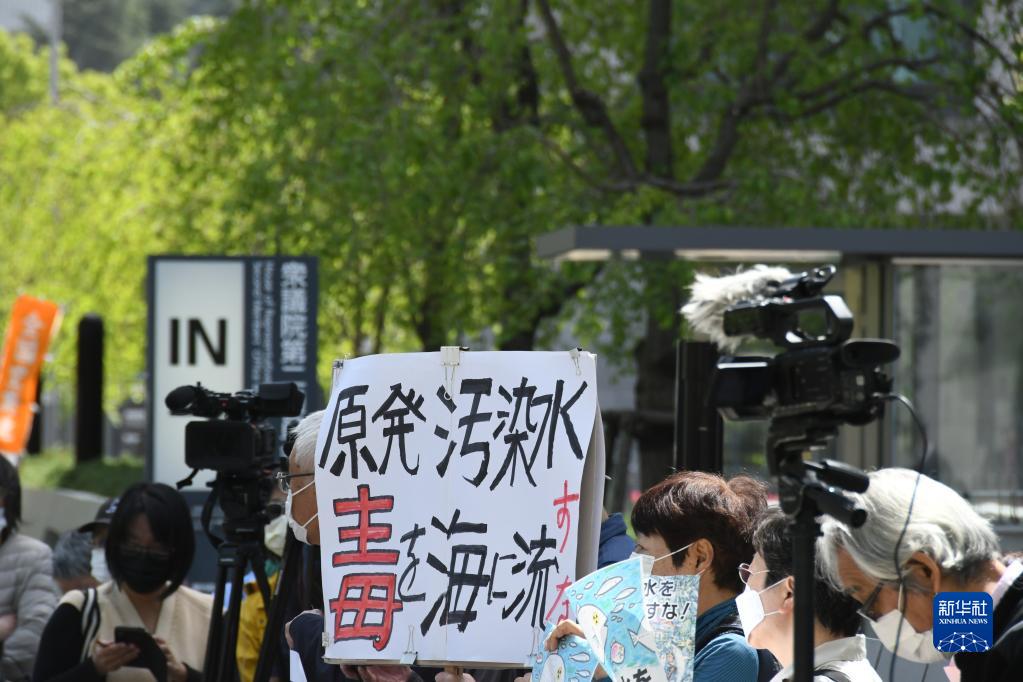
On April 13, in Tokyo, Japan, people held slogans to participate in a rally in front of the Second House of Representatives of the Japanese House of Representatives. Xinhua News Agency reporter Yue Chenxing photo
Two years ago today, the Japanese government decided to discharge millions of tons of nuclear polluted water from the Fukushima Daiichi nuclear power plant into the sea, ignoring opposition at home and abroad. Since the announcement of this decision, the Japanese people have held many rallies and protests. On the 13th, some Japanese people held a rally near the Japanese parliament to protest against the Japanese government’s plan to discharge nuclear polluted water into the sea.
According to reports, about 120 people attended the rally in front of the Second House of Representatives of the Japanese House of Representatives that day. The reporter saw at the scene that the protesters covered all ages, and they held slogans such as "Don’t let nuclear pollution pollute the sea" and "Don’t poison the sea". Around the live speaker, the crowd echoed loudly from time to time.
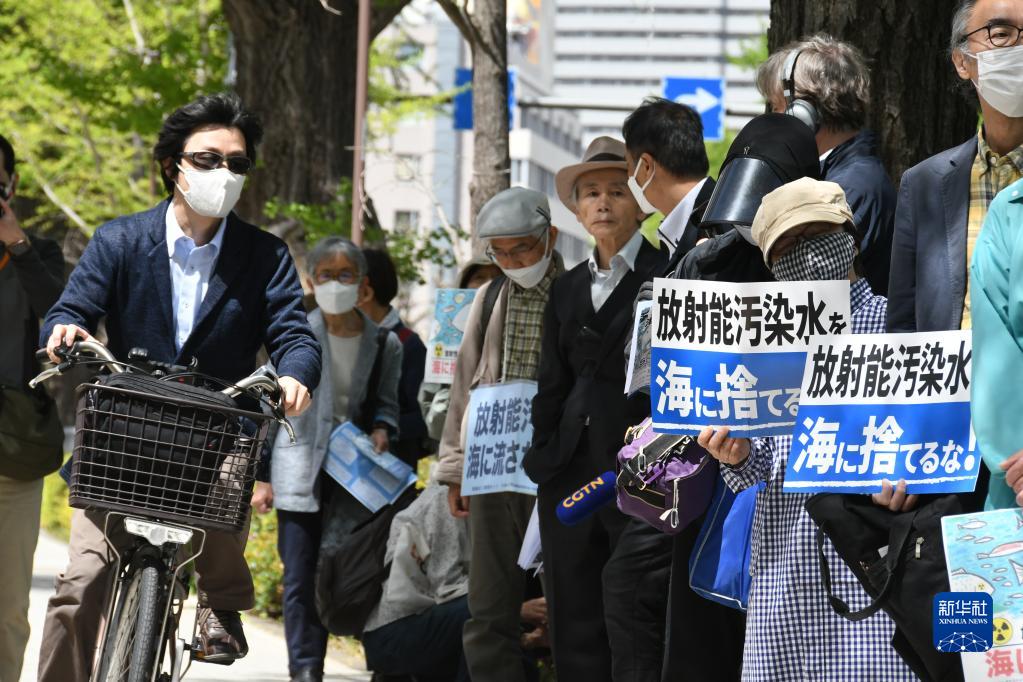
On April 13, in Tokyo, Japan, people held slogans to participate in a rally in front of the Second House of Representatives of the Japanese House of Representatives. Xinhua News Agency reporter Yue Chenxing photo
Miyoko Kumamoto, who attended the rally at the scene, is 80 years old. She moved to Fukushima Prefecture after retirement, but after the Fukushima nuclear accident in 2011, she was forced to take refuge in Tokyo. People with the same experience set up the "refuge coordination center" to support each other, and Ms. Kumamoto is also a member of the center.
She said that she wanted to enjoy an idyllic life in Fukushima Prefecture after retirement. The nuclear accident not only destroyed the lives of local residents, but also endangered people who depend on the sea for a living. We should not remain silent about the Japanese government’s decision to discharge nuclear polluted water into the sea, but should actively speak out against it. "The treatment of nuclear polluted water cannot be arbitrarily advocated by the Japanese government."
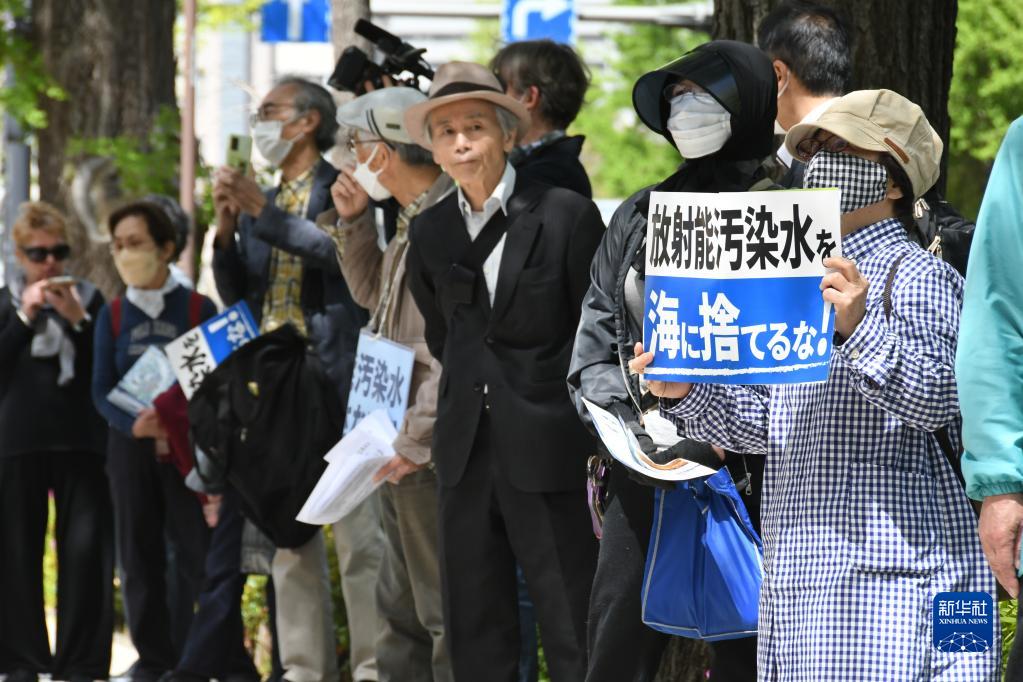
On April 13, in Tokyo, Japan, people held slogans to participate in a rally in front of the Second House of Representatives of the Japanese House of Representatives. Xinhua News Agency reporter Yue Chenxing photo
Yoshiko Furukawa, who gave a speech at the scene, could not hide his excitement, and his trembling voice was constantly amplified. She said that she used to live in Tomokamachi, Fukushima Prefecture, near the Fukushima Daiichi nuclear power plant. "Although discharging the nuclear polluted water accumulated in Fukushima into the sea may enable us to return home earlier, I don’t want others to point at me and say, ‘ The nuclear polluted water was discharged from her neighborhood ’ 。”
The organizer of that day’s rally, Inoue Nihiro, said that people who came here today are near Tokyo. Now, similar rallies and protests are being held all over Japan, some initiated by individuals and some organized by groups. In the past two years, we have launched various signature, assembly, demonstration and protest activities, and held a study meeting on nuclear polluted water on the Internet to popularize the knowledge about the dangers of nuclear polluted water.
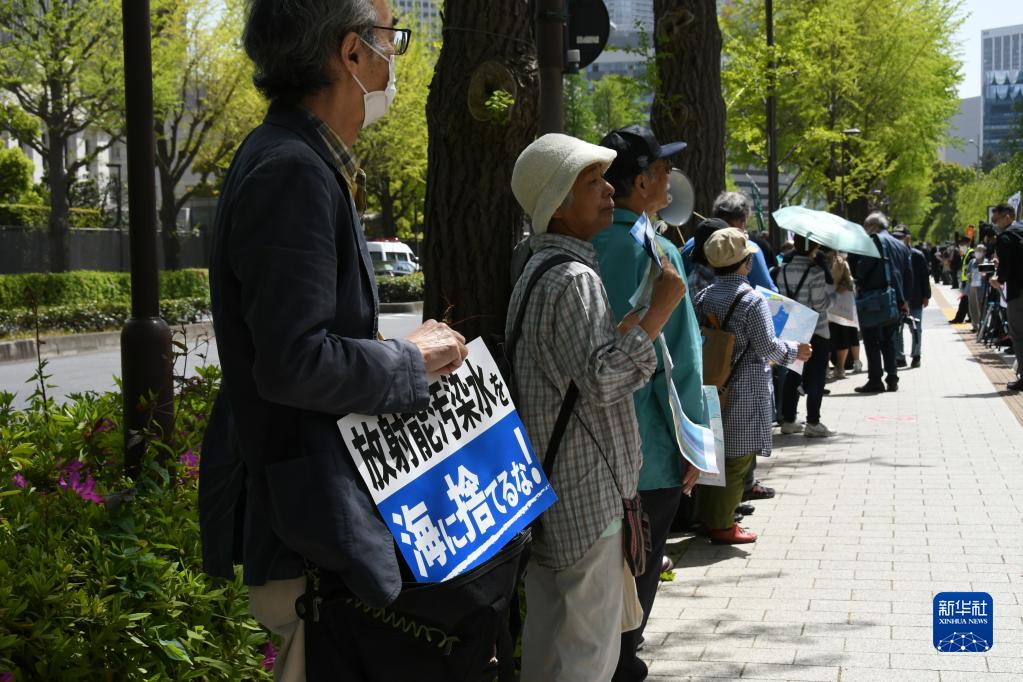
On April 13, in Tokyo, Japan, people held slogans to participate in a rally in front of the Second House of Representatives of the Japanese House of Representatives. Xinhua News Agency reporter Yue Chenxing photo
Inoue said that nuclear contaminated water must be stored first to minimize its radioactivity, and then discuss how to deal with it with countries around the world. "If nuclear polluted water is easily allowed to be discharged into the sea this time, it will be thrown into the sea as long as nuclear pollution occurs in the future."
On April 13, 2021, the Japanese government officially decided to filter and dilute millions of tons of nuclear polluted water from the Fukushima Daiichi nuclear power plant and then discharge it into the sea. In January 2023, the Japanese government set the discharge time of Fukushima nuclear polluted water as "this spring and summer".
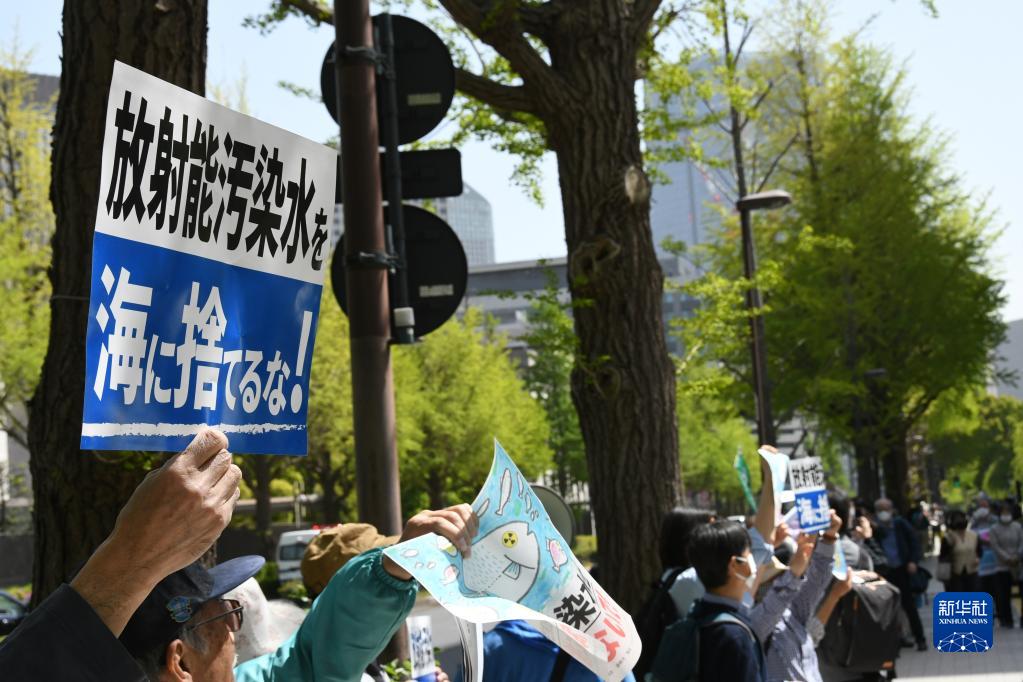
On April 13, in Tokyo, Japan, people held slogans to participate in a rally in front of the Second House of Representatives of the Japanese House of Representatives. Xinhua News Agency reporter Yue Chenxing photo
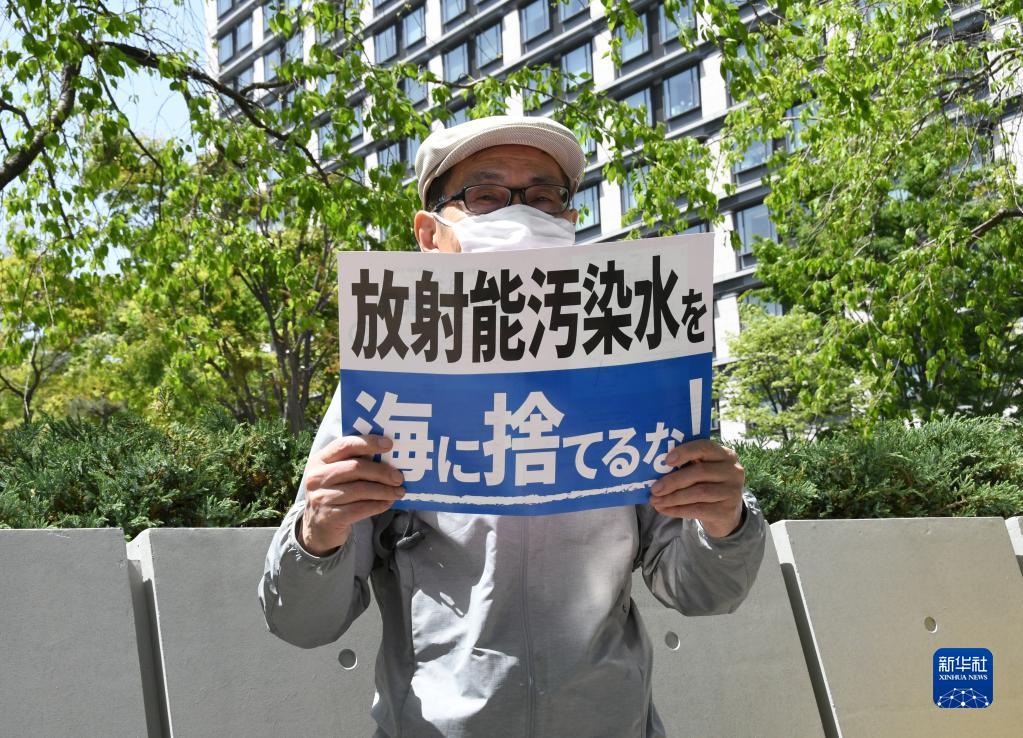
On April 13, in Tokyo, Japan, a man took part in a rally in front of the Second House of Representatives of the Japanese House of Representatives with a slogan. Xinhua News Agency reporter Yue Chenxing photo